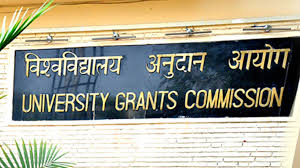The University Grants Commission (UGC) has released draft guidelines adhering to the implementation of Recognition of Prior Learning (RPL). RPL is a formal mechanism which will be used to evaluate a person’s existing knowledge, skills, and experience gained through formal, non-formal, or informal learning. RPL aims to integrate informal and non-formal learning into formal education through an assessment-based procedure.
It enables individuals to formalise their competencies (knowledge, skills and abilities) and earn credits according to a well-defined system. In its meeting on November 14, 2024, the commission accepted the draft guidelines for adopting RPL, which specified many mechanisms.
Through this, UGC aims to bring a groundbreaking change to the current workforce system of the country, wherein after its implementation, even non-traditional learners will also be integrated into the system.
M. Jagadesh Kumar, Chairman, UGC said, “we must address the challenges faced by India’s large informal workforce, which requires formal education and career progression opportunities. Recognition of Prior Learning (RPL) is integral to the vision of The National Education Policy (NEP) 2020. RPL allows individuals to gain formal recognition for skills and competencies acquired through informal, non-formal, or experiential learning. Through RPL, such individuals can access higher education, earn formal qualifications, and improve their employability.”
He further added, “the National Credit Framework (NCrF) supports RPL by facilitating the creditization of all learning forms—academic, vocational, and experiential. To enable individuals to convert their skills into qualifications, RPL helps bridge the gap between real-world experience and formal education and enhance career prospects.”
This will benefit 92.4% of workers who are categorised as informal, with no written contracts, paid leave, or other benefits. Workers in this sector frequently confront challenges, such as limited career opportunities and lack of formal recognition for job-related skills and expertise. Many people cannot pursue higher education, despite their desire to do so.
Thus, establishing a framework that recognises and supports non-formal education talents is crucial for promoting upward mobility.
RPL is already existing in many countries such as Australia, South Africa, and New Zealand.
Kumar said, “RPL contributes to economic growth, social inclusion, and a more skilled workforce. The guidelines also emphasize robust governance, quality assurance, and collaboration among policymakers, educational institutions, employers, and assessment bodies to ensure fairness, consistency, and inclusivity while implementing RPL. This UGC’s initiative aligns with NEP 2020’s goal of promoting a holistic and equitable education system.”
Eligibility
The draft guidelines also layout certain eligibility criteria under RPL.
RPL allows learners to gain credit towards a qualification based on their previous learning experiences gained through different ways, some of which are: On-the-Job Training, Internships, Project-Based Learning, Volunteering, Workshops, E-learning Platforms, Peer Learning, Personal Projects, Community Groups and more.
Candidates should hold relevant prior learning experience, language proficiency, demonstrated competence, sufficient depth and breadth of knowledge and skills, validity and authenticity of evidence and assessment readiness in order to fall under Recognition of Prior Learning (RPL).
